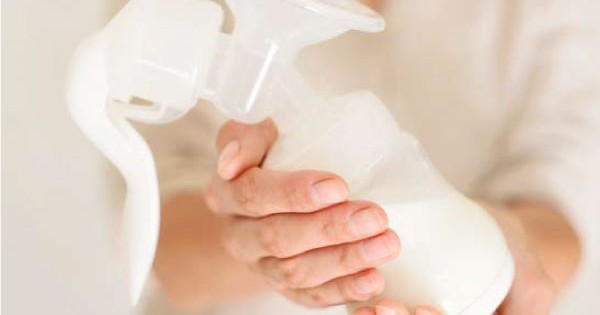Women have always worked, in both formal and informal sectors. So, how can women continue with breastfeeding if they work away or are separated from their babies?
Most women return to work while still breastfeeding their babies. To combine breastfeeding and employment successfully, one must plan ahead of time. A mother must be comfortable with breastfeeding and confident of her milk supply.This can be achieved by breastfeeding her baby frequently and exclusively (giving no other liquids or food in the weeks before returning to work). When the mother resorts to give her baby artificial milk or formula, this will reduce baby’s consumption of milk from the breast, and the mother’s milk supply will decrease. Breastmilk is essential for the health of both mother and the baby. In this 3-part article, we will discuss what breastfeeding mothers can do BEFORE she returns to work.
Before You Return to Work…
Discuss your breastfeeding plans with your employer prior to returning to work, what you will need and how she or he can help. Maternity leave in our country is for a period of not less than 60 days, so negotiate with your employer to stay at home for as long as possible after your baby is born. You may also discuss the possibility of working part time the first few weeks and ask for 2-3 flexible breaks during your work day.
Meet with your caregiver. Discuss your plans and how you want your baby fed when you are at work. It is important that your caregiver understands and supports your commitment to breastfeeding.
-
Some mothers breastfeed during their lunch break. Is it possible to go to your baby or have your baby brought to your workplace?
-
Some mothers want their baby to be fed expressed milk when they are at work. Show your caregiver how to store and handle the breastmilk properly. Written instructions are helpful.
-
Many mothers like to breastfeed as soon as they are with their babies. Your caregiver must know your expected time of arrival so she doesn’t feed your baby just before you return.
Feeding the baby whilst you are away. Babies don’t necessarily need a bottle. Introducing a bottle in the first few weeks of a baby’s life can interfere with breastfeeding and establishing a good milk supply. Babies can be fed expressed breastmilk in various ways: by cup, spoon, or feeder cup. If you need help with these feeding methods, contact a breastfeeding counsellor or ask your paediatrician. However, if you plan to give your baby a bottle, begin after 6 weeks old to avoid breast refusal and/or nipple confusion. Ensure that the bottle is bisphenol (BPA) free as there is evidence to suggest the chemical can interfere with the healthy growth and body functions of your baby.
Stock up expressed milk. To feed your baby expressed breast milk when at work, start storing your milk 2 weeks before returning to work. Ask dad or someone else to try giving your baby expressed milk. This allows the baby to associate its mother with direct feeding and expressed breastmilk with others.
Breast pump for work. If you plan to use a breast pump to express milk when at work, select a pump that is best suited for your particular needs. Practice pumping to get familiar with how the pump works, the time taken to pump and how your body feels when pumping.
Wardrobe check. Two piece outfits or clothes that fasten in the front are more convenient if breastfeeding or expressing your milk. Washable patterned clothing can hide wet areas if you are concerned about milk leakage.
Trial run. Choose a day to practice what returning to work will be like. Get yourself and your baby ready for the day. Breastfeed, leave your baby with the caregiver, go out for the day and express or breastfeed as you will when you return to work.
In coming issues, we will look into concerns of working breastfeeding mums WHEN she is at work, and HOW mums can express, thaw and store the milk for the baby.
Author’s Note: The author is contributing this article to Positive Parenting as she is keen to provide evidence-based information to parents. However, as a baby-food company is a sponsor of Positive Parenting, the author has declined to accept any payment for this article from Positive Parenting as she is an International Board Certified Lactation Consultant and is bound by the Code of Ethics to not accept any kind of support from baby food companies.







Comments